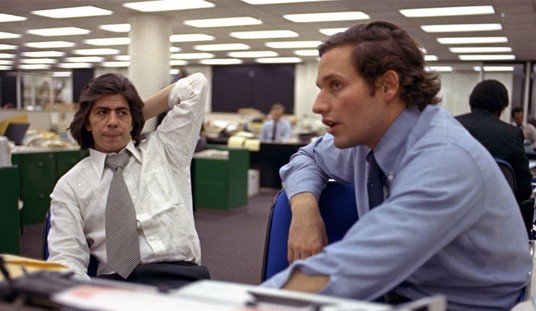The Super Tuesday (March 1, 2016) primaries are going to go a long way to determine who the Republican nominee winds up being. It looks like Donald Trump is well on his way to clean up, unfortunately. When the aftermath is written up and analyzed on Wednesday, we’ll see who’s left in the race, and what possible non-Trump ways there are forward. Marco Rubio has staked a lot on a dubious “strong second” strategy now, trying to leave himself as the only plausible consensus alternative.
I like Senator Rubio. I could definitely vote for him, but I don’t consider myself a supporter, at least not yet. It’s been refreshing since the last Republican debate on Thursday, February 25th that he’s been on the attack. This is the Marco Rubio I would have hoped to see since he launched his campaign: always positive, but also taking no crap from opponents or the media. This is the Marco Rubio who executed a flawless anti-establishment, anti-media campaign in 2010 to win his Senate seat against Charlie Crist. He won by being Marco Rubio.
It remains to be seen if it’s too little too late, but it’s more likely than not that it is. At this late date, Rubio becoming the Republican nominee, and the 45th President of the United States, is looking like a dim prospect.
But, it didn’t have to be this way. I think Rubio had an opportunity handed to him almost nine months ago on another Tuesday – June 9, 2015 – that he could have used to completely transform the dynamics of the race, establish himself as the clear front-runner, and never look back.
That was the day The New York Times published their front page hit-piece on Rubio’s personal finances. Remember this? “Issue” number one raised by Steve Eder and Michael Barbaro in the Times was how in 2012, Rubio received an $800,000 advance on a book, and then had the audacity to spend some of it on himself:
But at the same time, he splurged on an extravagant purchase: $80,000 for a luxury speedboat, state records show. At the time, Mr. Rubio confided to a friend that it was a potentially inadvisable outlay that he could not resist. The 24-foot boat, he said, fulfilled a dream.
The “luxury speedboat” characterization was roundly criticized including by a typical Rubio defender like…Jon Stewart on The Daily Show. The Rubio campaign laughed it off, and as anyone who knows boats can tell you, $80K doesn’t get you anything that can be called “luxury”. Rubio himself brought it up about two weeks later, tongue firmly planted in cheek, when he said:
“Well the thing about the boat is, too, it is a luxury speedboat, but it is cleverly disguised as a fishing boat,” Rubio said sarcastically. “But the best answer I got is someone who emailed me or texted me and said, ‘Any boat where you have to go to the bathroom off the side of the boat is not a luxury speedboat.'”
The Times‘ article actually did Rubio lots of favors. It positioned him as solidly middle class, and showed that like many middle class individuals and families over the last decade or so, personal finances are a daily concern. Gasp! He had student loan debt to pay off. Shocking! He struggled with mortgage payments. Unbelievable! He had to cash in a retirement account, just like so many other Americans during the “great recession”. All of those things speak to Rubio’s “every man” qualities. It produced a few good sound bites, but vanished quickly from “the narrative”.
All well and good, but it could have been so much better, and here’s how.
I picture a junior Rubio campaign staffer, maybe from their social media team, suggesting during the afternoon of June 9th that the best way for him to respond is to go to New York City, walk into the headquarters of the “old gray lady”, and go straight to the office of Dean Baquet, the executive editor. The idea would be brushed off at first, but think of the state of the campaign in early June 2015.
- There was no front runner.
- Some of the biggest contenders hadn’t even declared yet: Bush (6/15), Trump (6/16), Christie (6/30), Walker (7/13).
- The first to be the loudest would get the momentum.
A crazy thought indeed, but crazy enough to consider. Marco Rubio wins when he connects with people directly. What Republican/conservative voter wouldn’t stand up and cheer a direct, in person assault on progressive media? It’s crazy enough to work and would gain great attention. It would separate him from all the other candidates, announced and not.
Rubio would make the trip the next day from the nation’s capital – Wednesday, June 10th – on Amtrak’s Acela Express, giving him the opportunity to interact with the folks on the train. The whole trip could have been shown live via social media. Periscope was new then, but available. Plus Twitter, Snapchat, Facebook, Vine, etc. Regular media could be tipped off too – do you think they wouldn’t show up at the Times’ front door to see Rubio march in for a showdown?
Once in the city, Rubio and his team could even have rode the subway from Penn Station to the Port Authority Bus Terminal, right across 8th Avenue from the Times, just like ordinary commuters . And here’s the kicker: nobody at the Times would stop any United States Senator from entering. It just wouldn’t happen, but if it did, the ability to stream the whole thing live from mobile devices would be a total win for Rubio simply because it had never been done before. It would break all the rules.
Then, live on the Internet, Marco Rubio could walk into the executive editor’s office, slam a copy of the previous day’s “A” section on his desk, and deliver the perfect one sentence response:
Are you freaking kidding me, Mr. Baquet?!
And walk out.
How many Vine loops do you think Rubio’s one-line telling-off of the executive editor of The New York Times would get? Every news organization would run it as their top story. Who could then have gone to the studios of Fox News, CNN, and MSNBC in New York and gone right on air to talk about how ludicrous The New York Times was? Rubio.
It would’ve worked, and today we’d could be talking about Rubio securing his cake walk to the Republican nomination instead of Donald Trump.
Trump entered the race and immediately became the front-runner because of his in-your-face brashness and apolitical behavior. Marco Rubio was handed an opportunity by the enemy to make a real splash, and missed it. He could have been the candidate who broke the “Republican politician” mold. Who knows? A big Rubio splash in early June, vaulting him away from the pack, could’ve kept Trump out, especially as Trump’s early campaign was focused on ripping down the “low-energy” Jeb Bush.
Today, March 1, 2016, we mark the fourth anniversary of Andrew Breitbart’s passing, who knew better than most to this day that culture drives politics and cultural engagement is as important as political engagement if not more so. Rubio over the last several days has attacked Donald Trump both culturally and politically, and it looks like it’s finally working. What if he had done that all along? Yes, he tried to take the high road and not directly criticize his opponents personally, but time and time again we can demonstrate that approach doesn’t work, especially in today’s world of distributed mass media driven 140-character at a time tweet, by a six second Vine, or by an ephemeral Snapchat.
The pundit class is already head-shaking a bit at how the campaign is getting dirty and personal, but as Reason magazine showed back in October of 2010, we haven’t even now come close to how politics used to be conducted:
Gloves off, candidates. I wish Marco Rubio – and others – had realized that back in June.








Join the conversation as a VIP Member